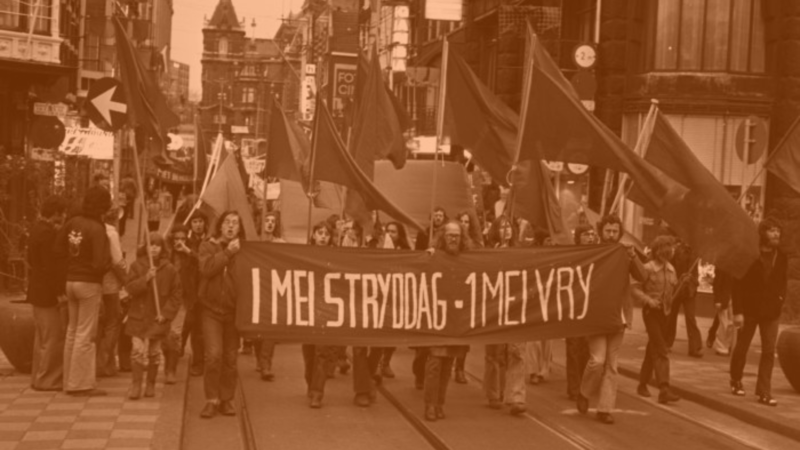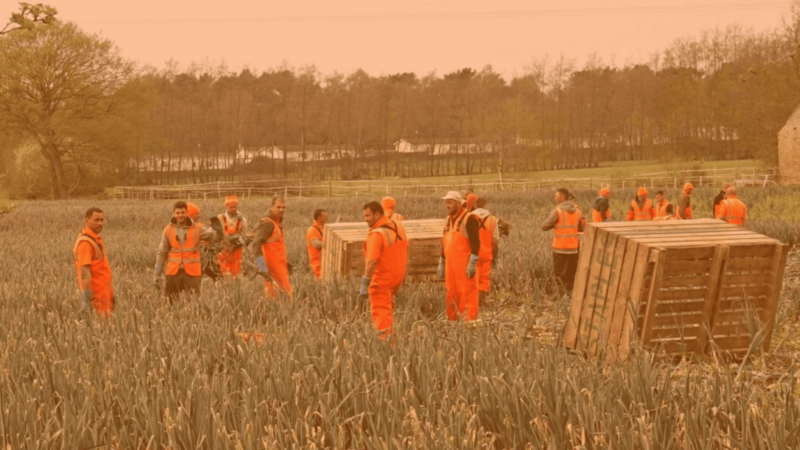The Anglo-Dutch oil and gas corporation, Royal Dutch Shell, has been in the news recently due to a ruling from a court in the Hague that has ordered the company to cut its global carbon emissions by 45% by the end of 2030, compared with 2019 levels.
The case is unprecedented, as “it is the first time a judge has ordered a large polluting corporation to comply to the Paris climate agreement”, according to Roger Cox, a lawyer for Friends of the Earth Netherlands, one of the organisations that took Shell to court.
However, whilst this ruling is something to celebrate, it is worth asking ourselves if telling the big corporations to go green and make their portfolio eco-friendly is the way to go in order to face the environmental crisis of which they are largely guilty?
At the beginning of his book titled “Energy and Equity”, the Austrian thinker Ivan Illich presents us with an interesting thesis. It states that believing in the idea that massive amounts of clean energy is the solution to our (environmental) problems represents an error of political judgement.
It does so, according to him, because imagining that energy production and political participation can grow vis a vis is an illusion. It is the fundamental illusion that makes us believe that the industrialised society can grow without restrictions, while at the same time allowing for democratic participation of this growth.
According to Illich, beyond a certain point, “more energy means less equity in a society”, mainly for three reasons: the increase of energy complexifies a system to such an extent that it requires technocracy to manage it, the amount of energy consumed depends on your social status, and the infrastructure to support energy increase modifies unevenly the physical and social environment.
We face a similar illusion when the shareholders of Shell voted positively (a few days before the mentioned court ruling) for an advisory vote on its Transition Strategy, instead of a more ambitious plan put forward by the green shareholder’s group ‘Follow this’. According to the company, its strategy is about “how we will navigate the transition profitably and in line with our purpose – to power progress together with more and cleaner energy solutions”.
As Timothy Mitchell argues in his book Carbon Democracy. Political power in the age of oil, our collective dependence on oil has shaped the political mechanisms that we have as a society to regulate ourselves. Oil dependence has undermined democracy and our capacity to address the problems it has created. Giving the shareholders of a multinational corporation the power to be the ones having the last word in a matter that concerns the whole world, is with no doubt not only a fantasy but a subversion of true democracy.
Corporate energy transition
After decades of being one of the most polluting companies on Earth, in February, Shell presented its Transition Strategy. It is not only Shell that has taken the path of Green Energy transition. Lately, we have seen more and more corporations greenwashing their projects as part of the emergence of a corporate energy transition regime. As explained by the Transnational Institute, this corporate energy transition regime has three main characteristics. First, it operates guided mainly by an energy efficiency principle, where the main objective is to emit fewer greenhouse gasses while keeping and even increasing the energy production.
Second, in this regime most elements of the transition (machinery, projects, regulations, research, etc.) are controlled, owned, or work in favour of transnational corporations. Third, the corporate energy transition regime governed by elitist technocrats does not address the question of distribution or access to energy of populations or citizen participation in decision-making processes.
The Transition Strategy report of Shell outlines its intended transitionary path. It states that in order to become a net-zero emitter of carbon by 2050, one of its objectives must be to scale up what they call “low carbon energy solutions” to a point where they are producing eight times more low-carbon fuels (biofuels and hydrogen) than today.
The focus on biofuels, however, has the potential to be especially problematic, due to the social and environmental costs that an approach like this has, particularly with regards to its impact on land use and biodiversity. Two examples of these environmental impacts can be found in Indonesia were “80 per cent of the rainforest has already disappeared, largely due to timber exploration and massive expansion of palm oil” and in Europe where “the European Union biofuels policy has triggered speculative land investments in the oil palm sector worldwide”.
Furthermore, the “transition strategy” presented by Shell is inherently environmentally unsustainable, as “land and freshwater depleted by industrial agriculture and tree plantations, biodiverse ecosystems converted to sterile monocultures and diverse forests logged for bioenergy certainly won’t be replenished in the time it takes to consume the energy derived this way”. It is also likely to be destructive for the communities based in the areas in which monocultures for biofuels will be grown. We are, in fact, already seeing communities that are being affected by the global land rush that the high demand for “green lands” has created.
Land grabbing and green initiatives
Without an environmental justice approach, people that were affected by non-renewable energy are at high risk of being affected by renewables projects. Research on Green Sacrifice Zones alerts us to the social and environmental costs of green energy transitions that are already taking place. The Environmental Justice Atlas is also an important tool that has mapped many of the places around the world where conflicts for the use of the territory have emerged between corporations and communities where renewable-energy plans are being carried on.
One example of this kind of conflicts can be found in the Mexican state of Oaxaca, where transnational corporations are building ten thousands of windmills, and where “Local citizens criticise that the corporations and the Mexican State are ignoring agrarian laws and indigenous rights”.
A capitalist global economy that is constantly growing without limits will constantly need more energy to function. Shell promises that it will provide some of this energy in a cleaner way by producing eight times more low-carbon fuels. However, the Anglo-Dutch company does not address the potential social or environmental impact of such a change.
According to an analysis of the company’s report, the only big difference between the new plan presented by Shell and its previous scenario is the use of “extensive scale-up of nature-based solutions”, specifically planting trees over an “area approaching [a size] that of Brazil”.
The production of biofuels requires massive amounts of land to meet the constantly increasing energy demands. This need for land dedicated to bioenergy production will stress even more the already conflictive competition for land in the rural areas of the world. According to Andrew Steer and Craig Hanson, “roughly three-quarters of the world’s vegetated land is already being used to meet people’s need for food and forest products, and that demand is expected to rise by 70% or more by 2050”. And they add that as reported by the World Resources Institute (WRI), “providing just 10% of the world’s liquid transportation fuel in the year 2050 would require nearly 30% of all the energy in a year’s worth of crops the world produces today”.
This places the world in a scenario where the pressure on lands for biofuels could increase the risk of land grabbing processes all around the world. One of the many examples is the case of Kamara in Sierra Leone: “Kamara is one of several thousand farmers in Sierra Leone whose lands have been taken over by the Swiss company Addax Bioenergy for a 10,000 hectares sugar cane plantation to produce ethanol for export to Europe”.
We are entering into an era of Green Grabbing. An era in which transnational companies like Shell in their transition, will start pressuring the economies of the Global South for massive amounts of land for their green projects. Shell will carry out this transition not only without addressing its actual ecological debt with the countries of the Global South but with a high chance of producing more damage to the ecosystems and communities of it. Now that is “transitioning” to renewables, what would make Shell focus on the ecological debt that it owes to people from the Global South?
That a group of shareholders of an energy company can represent the people of the world in deciding on the future of the planet, and that green energy doesn’t have social and ecological impacts are both illusions and conveniently ignored facts. Land grabbing for biofuels is a severe threat to the livelihoods of millions of peoples in the Global South. It is impossible to think that an energy transition strategy that relies so much on the production of biofuels will be just. Without an environmental justice approach, the victims of the operations of Shell will not change, only the way in which they are affected.
There will be no more oil spilling but now we will have green sacrifice zones, millions of hectares grabbed, and millions of inhabitants displaced. We don’t have enough time to sit and wait to see whether the clean energy business model of Shell will work. We have enough research to know it will not, so it’s time to demand that this company pay its long-standing ecological debt and contribute to dismantling Shell by any means necessary.
Photo (c) Annelien Nijland
Do you want to be informed of DiEM25's actions? Sign up here















